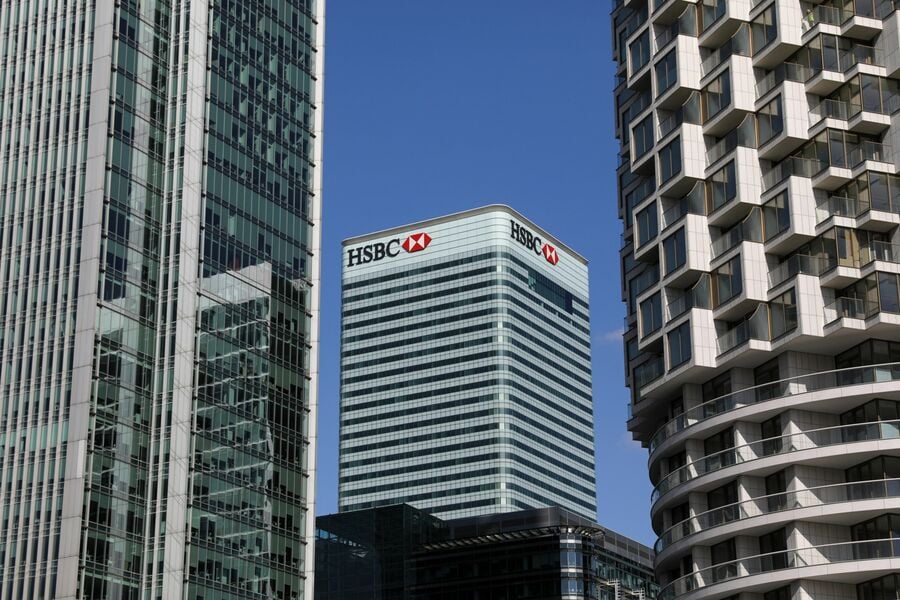

HSBC Holdings Plc has become one of the first banks to set targets for limiting the carbon footprint of its capital markets business.
The bank’s so-called facilitated emissions targets will apply to its underwriting of deals for the oil and gas, as well as power and utilities sectors, according to its annual report published on Wednesday.
The calculation is new, and follows a recent industrywide agreement to disclose the emissions associated with banks’ capital markets operations. HSBC said it will include debt and equity capital markets as well as syndicated loans in the disclosure.
“We recognize that data, methodologies and standards for measuring emissions and for target setting will continue to evolve,” the London-based bank said on Wednesday in connection with the publication of its annual results.
Disclosure guidelines around facilitated emissions were introduced by the Partnership for Carbon Accounting Financials at the end of 2023. The PCAF accord asks banks to disclose 33% of greenhouse gas emissions associated with bond and equity underwriting. That’s in line with a proposal put forward by an eight-member working group chaired by Barclays Plc and Morgan Stanley, and of which HSBC was also a member.
HSBC’s facilitated emissions:
Though banks have long been expected to publish the carbon footprint associated with their loans books, known as financed emissions, coming up with estimates for facilitated emissions has remained a divisive subject. That’s because corporate bond sales rarely remain on a bank’s balance sheet once they’re issued.
“As we are at the beginning of our journey to track and measure progress, we believe it would be premature to infer future trends from the 2019 to 2022 progress at this stage,” HSBC said.
Jeanne Martin, head of banking program at London-based climate nonprofit ShareAction, said a 100% target — instead of the 33% agreed by PCAF — would be better for the environment.
“This is a missed opportunity for the bank to show it is serious about its green credentials and meeting its own net zero goal,” Martin said in a statement. “The bank needs to set ambitious targets and stick to them to prevent catastrophic global warming that puts people and planet at risk.”

The new regional leader brings nearly 25 years of experience as the firm seeks to tap a complex and evolving market.

The latest updates to its recordkeeping platform, including a solution originally developed for one large 20,000-advisor client, take aim at the small to medium-sized business space.

David Lau, founder and CEO of DPL Financial Partners, explains how the RIA boom and product innovation has fueled a slow-burn growth story in annuities.

Crypto investor argues the federal agency's probe, upheld by a federal appeals court, would "strip millions of Americans of meaningful privacy protections."

Meanwhile in Chicago, the wirehouse also lost another $454 million team as a group of defectors moved to Wells Fargo.
Orion's Tom Wilson on delivering coordinated, high-touch service in a world where returns alone no longer set you apart.
Barely a decade old, registered index-linked annuities have quickly surged in popularity, thanks to their unique blend of protection and growth potential—an appealing option for investors looking to chart a steadier course through today's choppy market waters, says Myles Lambert, Brighthouse Financial.
